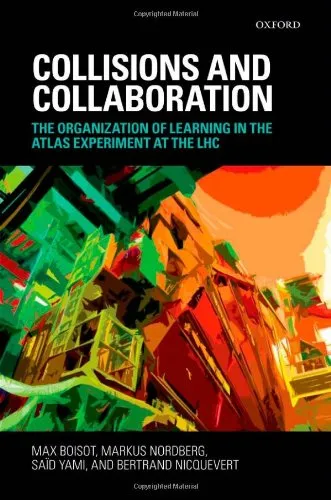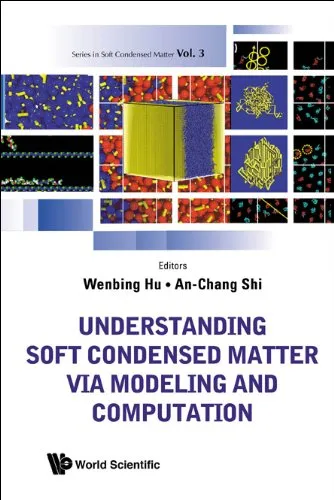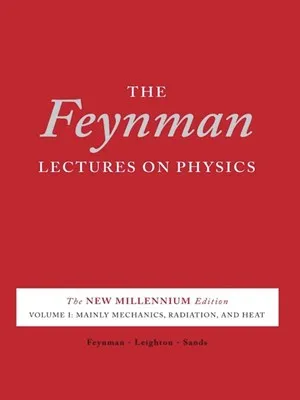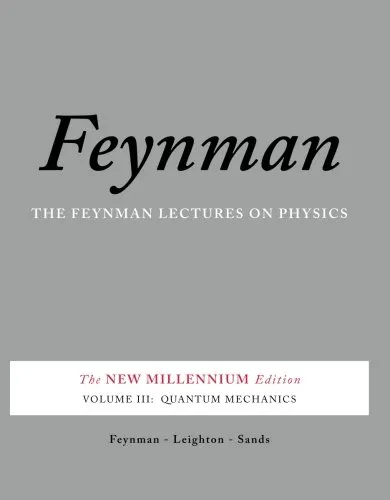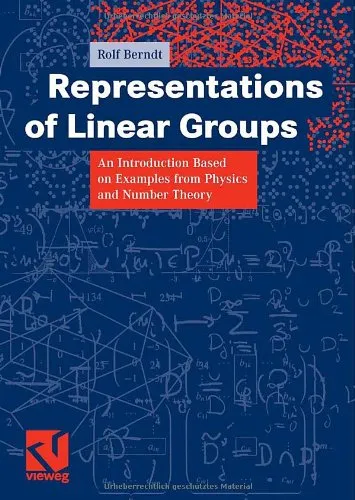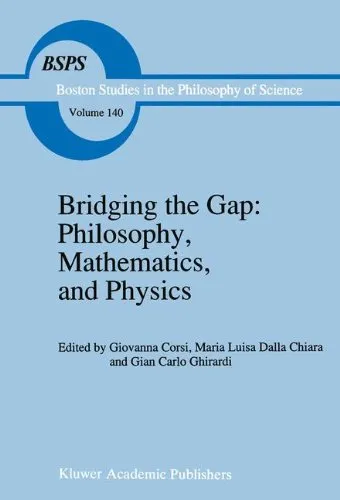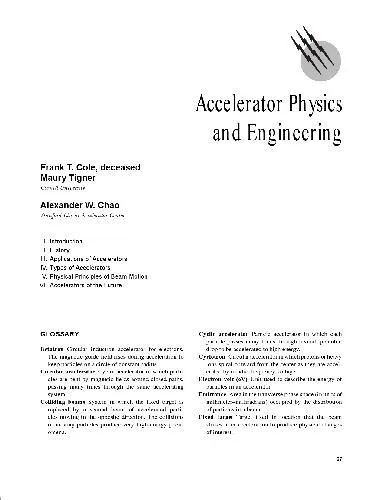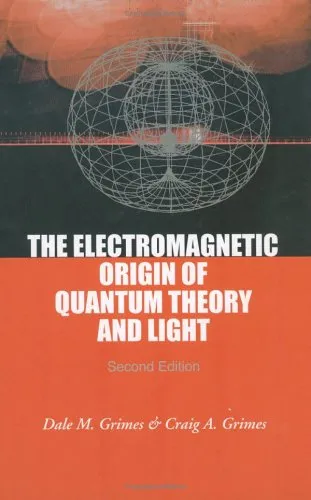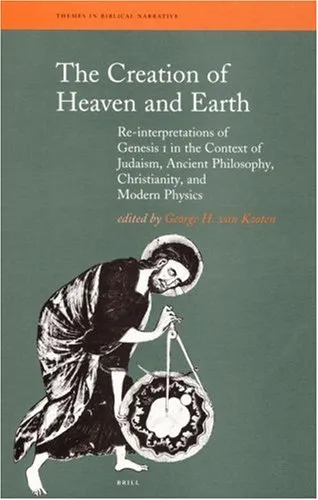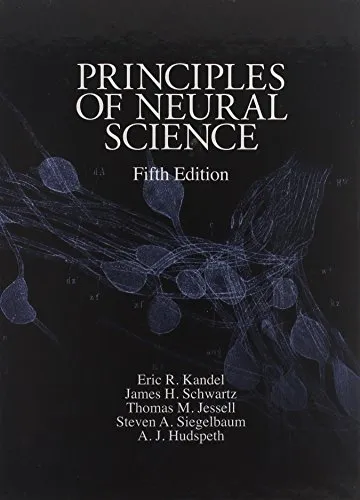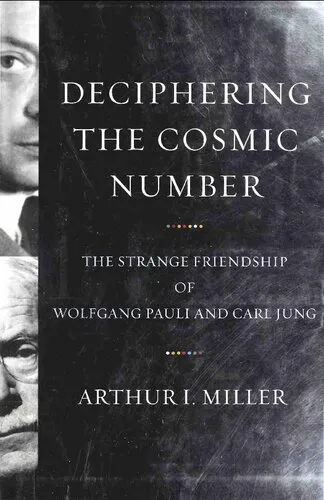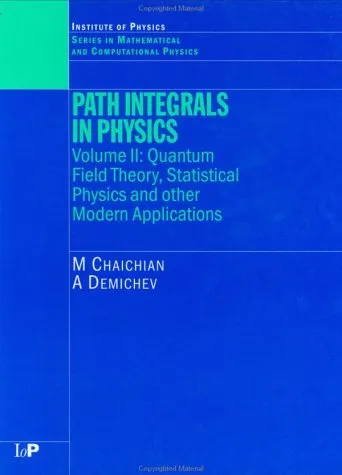Collisions and Collaboration: The Organization of Learning in the ATLAS Experiment at the LHC
4.8
بر اساس نظر کاربران

شما میتونید سوالاتتون در باره کتاب رو از هوش مصنوعیش بعد از ورود بپرسید
هر دانلود یا پرسش از هوش مصنوعی 2 امتیاز لازم دارد، برای بدست آوردن امتیاز رایگان، به صفحه ی راهنمای امتیازات سر بزنید و یک سری کار ارزشمند انجام بدینکتاب های مرتبط:
معرفی کتاب 'Collisions and Collaboration: The Organization of Learning in the ATLAS Experiment at the LHC'
کتاب 'Collisions and Collaboration: The Organization of Learning in the ATLAS Experiment at the LHC' تالیف مکس بویسوت، مارکوس نوردبرگ، سعید یامی و برتراند نیکووغ، یک مطالعه جامع و مبتکرانه از فرآیند یادگیری و همکاری علمی در یکی از بزرگترین پروژههای علمی جهان، یعنی آزمایش ATLAS در برخورددهنده بزرگ هادرونی (LHC) است.
خلاصهای از کتاب
این کتاب به بررسی عمیق مفهوم یادگیری سازمانی در میان یک جامعه علمی پیشرفته میپردازد، جایی که دانشمندان و مهندسان از سراسر جهان گرد هم آمدهاند تا به پروژهای با ابعاد و پیچیدگی بینظیر کمک کنند. کتاب نشان میدهد چگونه همکاری و یادگیری به عنوان دو عنصر کلیدی در ATLAS، به کشفهای نوین و پیشرفت در فیزیک ذرات انجامیده است.
با تمرکز بر مدلهای تحلیلی و روایتهای تجربی، نویسندگان ساختار سازمانی پیچیده ATLAS را آشکار میسازند و نشان میدهند که چگونه نوآوری، مدیریت دانش و ساختارهای یادگیری پاسخگوی چالشهای بیسابقه موجود بودهاند. به علاوه، کتاب به طور مفصل به نقش تکنولوژیهای اطلاعاتی و ارتباطاتی در تسهیل همکاری بینالمللی و توسعه دانش پرداخته است.
نکات کلیدی کتاب
- تحلیل عمیق ساختارهای یادگیری و همکاری در پروژههای علمی بزرگمقیاس
- نقش حیاتی تکنولوژیهای اطلاعاتی در پیشبرد تحقیقات علمی
- درسهایی درباره مدیریت دانش و نوآوری از طریق همکاری جهانی
- کاوش در شیوههای مقابله با چالشهای پیچیده و تغییرات سریع
نقلقولهای مشهور از کتاب
"علم بزرگ زمانی به موفقیت میرسد که بهترینها از سراسر جهان با یکدیگر برای هدفی مشترک همکار شوند."
"نوآوری نیازمند ترکیبی از دانش، انعطافپذیری و همکاری است که از طریق یادگیری سازمانی مستمر قابل دستیابی است."
چرا این کتاب مهم است؟
این کتاب منبعی ارزشمند برای درک بهتر چگونگی کارکرد پروژههای علمی بینالمللی و بزرگمقیاس است. با توجه به پیچیدگیها و چالشهایی که در چنین پروژههایی وجود دارد، کتاب 'Collisions and Collaboration' چراغی راهنما برای دانشمندان، مدیران پروژه و سازمانهایی است که به دنبال بهترین شیوهها در مدیریت نوآوری و دانش هستند.
به دلیل تحلیلهای دقیق و داستانهای واقعی ارائهشده درباره ATLAS، این کتاب نه تنها به عنوان یک منبع آموزشی بلکه به عنوان الهامی برای نسلهای آینده دانشمندان و متفکران عمل میکند. ارزش کتاب در توضیح چگونگی موفقیت همکاریهای علمی بینالمللی و اهمیت آن در توسعه دانش بشری بینظیر است.
Welcome to the intricately fascinating world of large-scale scientific collaboration, as we delve into the soul of one of the biggest experiments in human history—the ATLAS Experiment at the Large Hadron Collider (LHC). "Collisions and Collaboration: The Organization of Learning in the ATLAS Experiment at the LHC" offers an unprecedented exploration into how thousands of scientists from around the globe converge to make groundbreaking discoveries.
Detailed Summary of the Book
The book embarks on a compelling journey through the organizational dynamics and learning processes shaping the ATLAS Experiment at CERN's LHC. Situated at the intersection of physics, organizational theory, and knowledge management, this scholarly work dissects how scientific communities collaborate to harness collective intelligence effectively. The ATLAS Experiment is not just a scientific endeavor but a massive organizational challenge, where thousands of scientists, engineers, and technologists from diverse backgrounds must leverage their expertise toward common goals. Through firsthand observations, the authors draw a detailed picture of how these multinational teams form, interact, and solve problems, revealing insights into the flow of information and decision-making across different phases of the experiment.
Key Takeaways
- The ATLAS Experiment serves as a living lab for studying large-scale collaboration and organizational learning.
- Understanding the intricate communication networks among global scientists can enhance collaborative efforts in various fields.
- The book introduces a model of the "i-Space," which represents how organizations can navigate and manage complexity and uncertainty in knowledge-intensive environments.
- Identifying organizational bottlenecks and strategic knowledge flows can significantly impact the effectiveness of massive collaborations.
Famous Quotes from the Book
"The ATLAS Experiment isn't just about smashing particles, but about creating groundbreaking knowledge through powerful global collaboration and resourceful communication."
"Effective learning in organizations isn't just about knowledge acquisition; it's about the collective agility to adapt and innovate amidst change."
Why This Book Matters
The importance of this book lies in its unique perspective on one of the world's most ambitious scientific projects. By analyzing the ATLAS Experiment, the work offers practical insights into managing and optimizing large-scale collaborations. These insights are invaluable not only to physicists but also to managers, organizational theorists, and anyone involved in collaborative projects spanning diverse geographic and intellectual landscapes. Beyond this, the exploration of "i-Space" provides a framework that can be adapted to understand and facilitate learning and innovation in complex, dynamic environments. As organizations around the world become more interconnected, the lessons drawn from the ATLAS Experiment resonate strongly, offering pathways to harness collective intelligence more effectively.
دانلود رایگان مستقیم
شما میتونید سوالاتتون در باره کتاب رو از هوش مصنوعیش بعد از ورود بپرسید
دسترسی به کتابها از طریق پلتفرمهای قانونی و کتابخانههای عمومی نه تنها از حقوق نویسندگان و ناشران حمایت میکند، بلکه به پایداری فرهنگ کتابخوانی نیز کمک میرساند. پیش از دانلود، لحظهای به بررسی این گزینهها فکر کنید.
این کتاب رو در پلتفرم های دیگه ببینید
WorldCat به شما کمک میکنه تا کتاب ها رو در کتابخانه های سراسر دنیا پیدا کنید
امتیازها، نظرات تخصصی و صحبت ها درباره کتاب را در Goodreads ببینید
کتابهای کمیاب یا دست دوم را در AbeBooks پیدا کنید و بخرید
1320
بازدید4.8
امتیاز0
نظر98%
رضایتنظرات:
4.8
بر اساس 0 نظر کاربران
Questions & Answers
Ask questions about this book or help others by answering
No questions yet. Be the first to ask!
